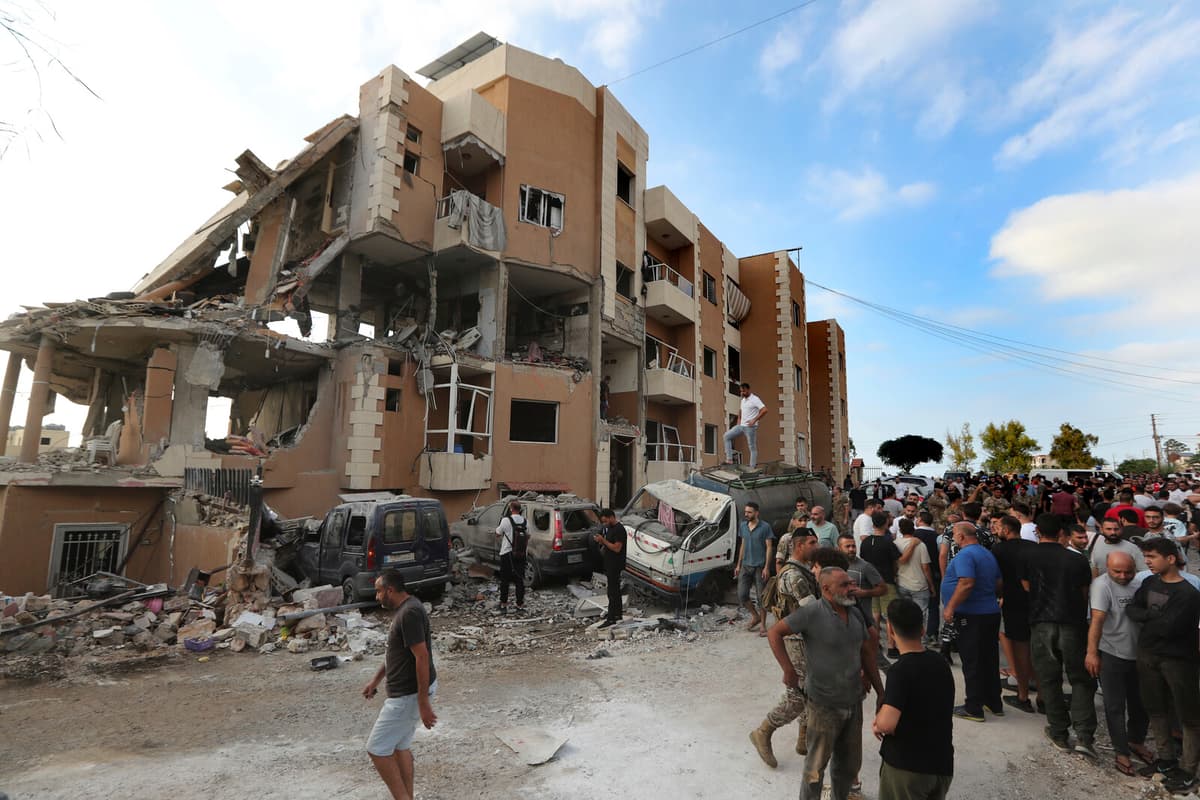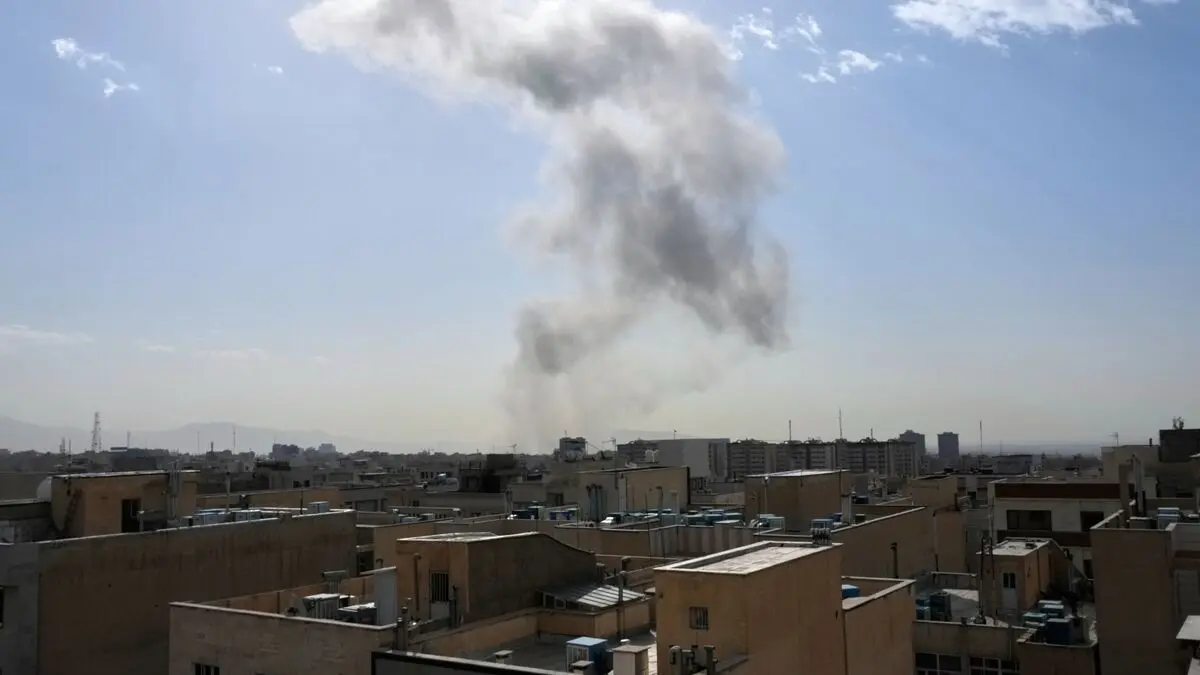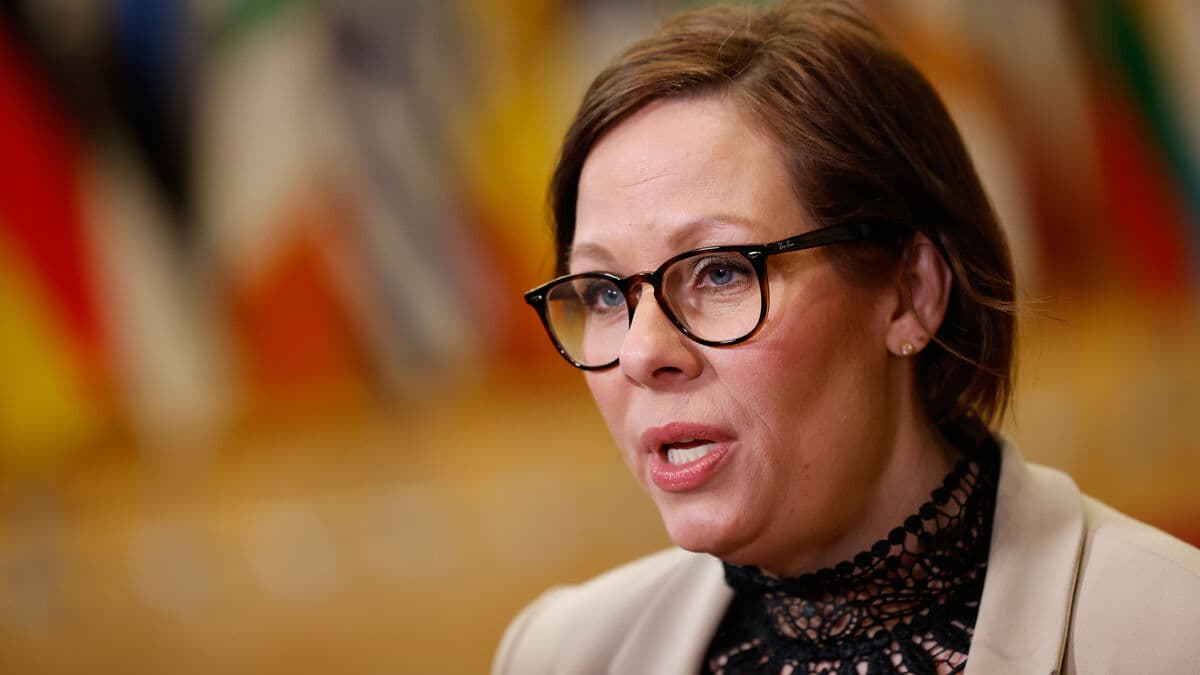A comic strip shows a cake in multiple layers. The bottom layer is called economic collapse, on top of that is the pandemic layer, followed by more cake layers: the Beirut port explosion, political deadlock, and mass depression.
Above the Lebanese cake, a hand holds a cherry with the word "war" to be placed on top of everything else. The drawing is made by the Beirut-based illustrator Bernard Hage, who goes by the artist name "The Art of Boo".
The Lebanese people's trauma never ends, says Carine Nakhle at the suicide hotline Embrace. The phones are manned 24/7 for calls from people in crisis.
Many of them have called us from areas where they are being bombed, or from a place where they have taken shelter, says Nakhle.
"Another me"
Over 1,400 people – both civilians and members of the Hezbollah movement – have been killed in Lebanon in the past month in Israel's attacks. Over a million have been forced to flee their homes.
45-year-old Rita Barotta lives in a relatively calm area just north of Beirut. She says she cannot describe what is happening, but she is trying to help people on the run find a roof over their heads or get necessary medicine. She can barely remember how life was just a few weeks ago.
Eat, sleep, take care of my plants – none of that exists anymore. I am another me. The only thing that exists for me now is how I can help.
If I stay still for just five minutes, I feel completely empty, she says.
"Accumulation of stress"
The only way not to feel overwhelmed and terrified is to keep going, says Rita Barotta.
What is happening today is not just a new trauma, it is a feeling of enormous injustice. Why are we being dragged into all this?
All Lebanese have difficulties in one way or another today, says Rami Bou Khalil, head of the psychiatric unit at Hotel Dieu hospital in Beirut.
Lebanese have a great capacity for resilience. But there is an accumulation of stress that makes the cup overflow, he says.
For years, we have exhausted our physical, psychological, and economic resources. People just can't take it anymore, he says.
Lebanon's economy is in free fall, with threats of state bankruptcy and desperate need for international crisis loans. The state has been calculated to be one of the most heavily indebted countries in the world, relatively speaking.
Tens of thousands of jobs have been lost, and the crisis has led to widespread shortages of water, electricity, medicine, and functioning communication services. A large part of the former middle class has fallen into poverty.
The catastrophe on August 4, 2020, when a massive port explosion devastated parts of Beirut, made the situation even worse. The attempts to investigate what lay behind have become yet another battleground in the power struggle within the country's ruling elite.
The escalating conflict between Israel and Hezbollah, an Iran-backed movement described as a "state within a state" in Lebanon, further hits the crisis-stricken country's economy.






